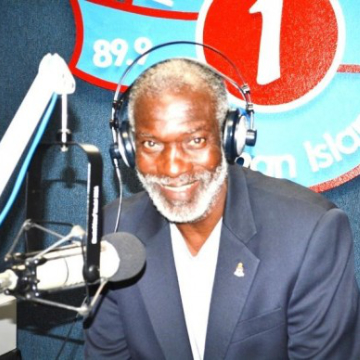News
Colours Caribbean And HE The Governor Succeed In Preserving Civil Partnerships For The Cayman Islands

On Monday, in the case of “Kattina Masura Anglin vs The Governor of the Cayman Islands,” Justice Richard Williams of the Grand Court delivered his judgement in which he has concluded that The Governor acted lawfully when he relied upon his reserved powers in Section 81 of Schedule 2 of the Cayman Islands Constitution Order 2009 (“the Constitution”) to enact the Civil Partnership Act 2020 (“CPA”).
“The CPA provides for both opposite-sex and same-sex couples to enter into a civil partnership. It also amends various pre-existing legislation, thereby conferring on civil partners a large number of rights and obligations corresponding to those that attend on marriage.”
The judgement confirms that the enactment of the CPA was within the scope of his responsibility for “external affairs” as set out in Section 55 of the Constitution. In lay terms, this means that all minorities in the Cayman Islands now have an effective remedy for declared breaches of their human rights under the European Convention On Human Rights (“ECHR”) in the jurisdiction. Parliament does not have the choice of whether to comply or not—it has only the choice of the remedy by which to redress the breach. Failure by Parliament to provide a remedy—as it did on 29 July 2020—will result in the need for The Governor to rely upon his reserved powers in Section 81 once again.
This was a very important constitutional case and Colours Caribbean welcomes the decision of Justice Richard Williams. This would not have been possible had Colours Caribbean, with the aid of Stonewall, not previously prevented the removal of Section 81 of the Constitution in 2020. Section 81 gives The Governor of the Cayman Islands the power to enact legislation with the approval of a UK Secretary of State. It was through Section 81 that Governor Martyn Roper, upon instruction by the UK Government, was able to enact the Domestic Partnership Law—which was renamed the Civil Partnership Law—and amend 11 accompanying pieces of legislation to bring it in line with the legal framework formalising same-sex relationships.
We would like to thank our excellent legal team—Alex Potts QC, partner of Conyers; Caroline Edwards, partner of Travers Smith; and Sarah Hannett QC, of Matrix Chambers and all the lawyers and assistants behind them—for their pro bono work and for bolstering our efforts towards achieving marriage equality for the LGBTQIA+ community by ensuring our involvement in this historic case.
It is through the tireless work of our organisation, our volunteers and our legal team that same-sex couples and the LGBTQIA+ community of the Cayman Islands as a whole can now rest easy in the knowledge that their civil partnerships will remain legally recognised indefinitely. This provides certainty for same-sex couples as well as for different-sex couples who have already taken advantage of the CPA or may in the future.
Colours Caribbean recognises that we all have equal rights, albeit with different names—the former cannot be belittled notwithstanding the stigmatisation and victimisation that segregation inflicts on same-sex couples by prohibiting access to the secular institution of marriage.
We want to assure the LGBTQIA+ people of the Cayman Islands that the fight for marriage equality is far from over.












